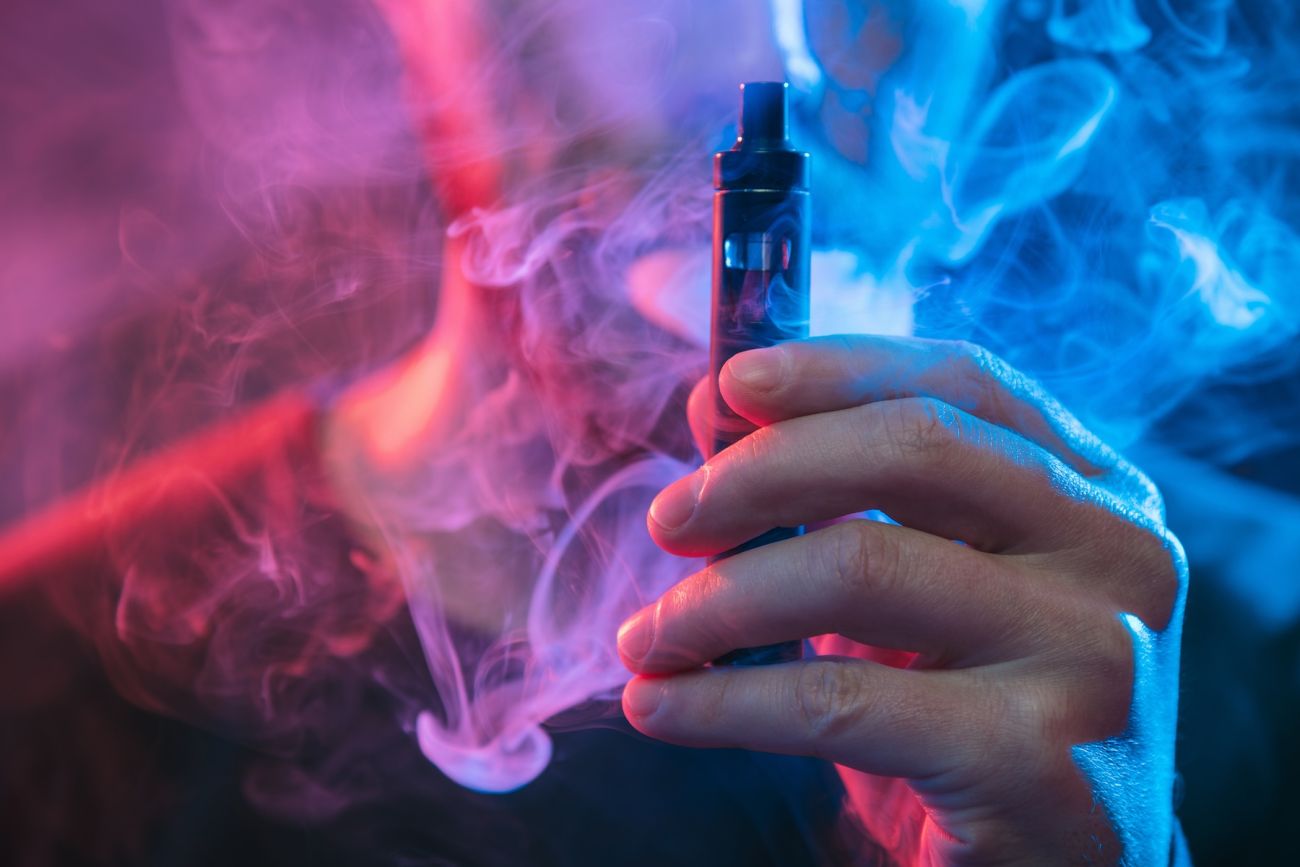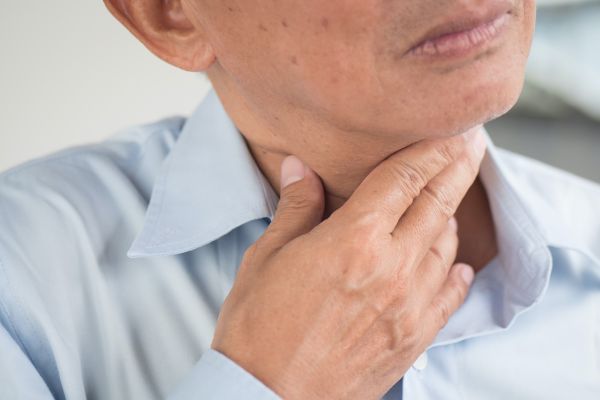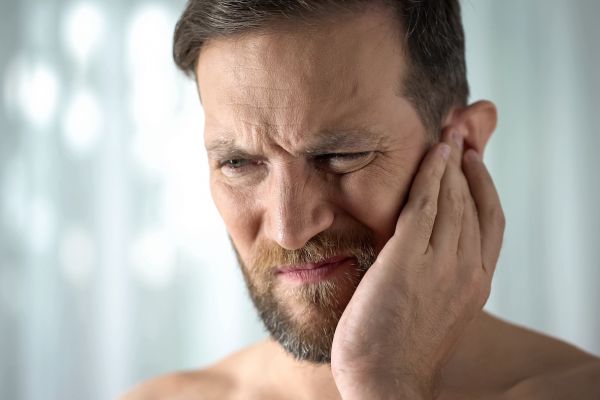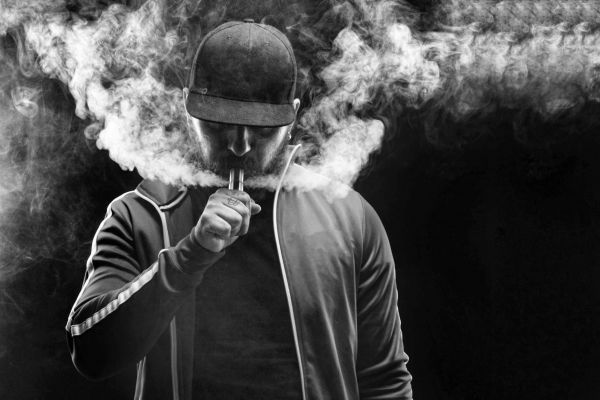Using e-cigarettes is not risk free
The short answer is maybe. Currently, there is limited evidence so far of a direct link with throat cancer. Vaping uses a device to heat up a liquid containing nicotine and flavoring, creating a vapor which the user then inhales. While tobacco cigarettes are burned, resulting in thousands of chemicals being inhaled, vaping generally produces fewer toxins and at lower concentrations than cigarette smoke. However, that does not mean that vaping is risk-free.
The first electronic cigarettes (e-cigarettes) were introduced in the U.S. around 2007 as an alternative to smoking traditional cigarettes. The reality is that nicotine is a highly addictive chemical that can increase your blood pressure, heart rate and may lead to a heart attack, and some studies show nicotine can cause tumors to grow faster. Other research has found that vaping may cause DNA damage in head and neck cells and it’s possible that chronic exposure to vaping aerosols has adverse effects on throat tissue; however, the scientific evidence is still being collected.
“The issues that I come across with vaping are whether it’s a safe alternative to cigarette smoking. But there’s a difference between safe and safer, and that’s the fundamental aspect here,” explains Andrew Hyland, PhD, Chair of the Department of Health Behavior at Roswell Park Comprehensive Cancer Center.
“It took decades of epidemiological evidence to show that cigarette smoking caused cancer. Vaping has been around for only about 10 years, and many of the people who vape are also using cigarettes, so it’s harder for the scientists to sort out causal effects.”
Throat cancer can take decades to develop
The highest prevalence of e-cigarette use is among people 18 to 24 years old, but throat cancer can take decades to develop. It is typically diagnosed in people over 55 years old, and many people who vape also have smoked traditional cigarettes, which means they may already be experiencing adverse tobacco-related health effects that increase cancer risk. Throat cancer symptoms can include, among others:
- Sore throat that doesn't go away
- Changes in your voice
- Difficulty swallowing
- Persistent cough
In addition, formaldehyde and acetaldehyde are known carcinogens found in many e-cigarette products. Acetaldehyde is considered a prominent cancer-causing agent, especially for the esophagus and head and neck. In some vaping liquids, researchers have also identified tobacco-specific nitrosamines, heavy metals like lead, and polycyclic aromatic hydrocarbons as carcinogens.
These factors have limited conclusive investigation of vaping as it relates to the risk of cancer. But for cancer prevention, the advice is clear: Do not use any tobacco product – or to quit if you do.
Roswell Park helps 30,000 people quit smoking each year
“Currently there is no U.S. medical society that recommends vaping products to quit smoking. If somebody comes in with throat cancer for treatment, they should stop using all tobacco and vaping products right away. That’s the recommendation,” Dr. Hyland advises. “Quitting smoking is super important for cancer patients, and it's never too late to quit. If you quit smoking during your treatment or after your treatment there’s a health benefit.”
Nicotine dependence is a chronic relapsing health condition. Roswell Park was among the first organizations to look at the link between tobacco and cancer and published one of the first epidemiological studies linking smoking to lung cancer in 1950.
NYS Smokers Quitline
If you or a loved one is trying to quit smoking, and are a resident of New York state, you can call the NYS Smokers Quitline at 1-866-NY-QUITS (1-866-697-8487) or visit www.nysmokefree.com. Eligible callers can get access to free nicotine replacement therapy products in addition to telephone counseling. Telephone counseling is also available now for e-cigarette users as well.
Roswell Park oncologist Christine Sheffer, PhD, Director, Bio-Behavioral Health & Recovery Lab and Director, Roswell Park Tobacco Treatment Service, is currently on the National Comprehensive Cancer Network (NCCN) committee updating guidelines for smoking cessation in cancer patients. Since 2000, Roswell Park has administered the New York State Quit Line. The free service — which helps a about 30,000 people a year with their efforts to quit smoking — provides behavioral support with tobacco treatment specialists and most people are also eligible for a starter kit of nicotine replacement therapies like the patch or gum.
“If you’re a patient, talk with your doctor about quitting smoking and that will help your treatment work better,” says Dr. Hyland.
“Roswell Park’s got the experience. We’ve been doing this a long time. We’re a trusted expert with trusted resources and we are here to help.”





